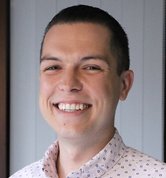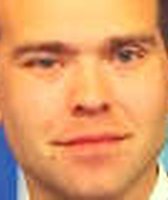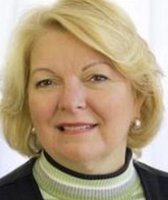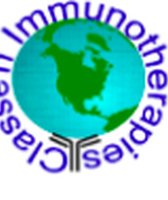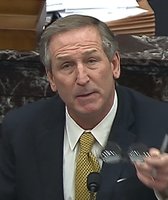Stand up for the facts!
Our only agenda is to publish the truth so you can be an informed participant in democracy.
We need your help.
I would like to contribute
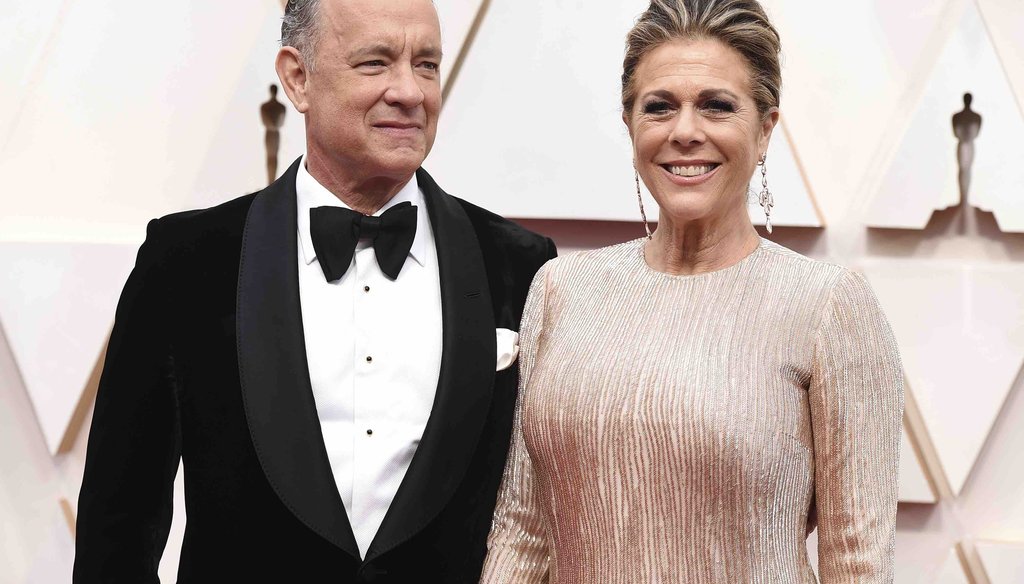
Tom Hanks, left, and Rita Wilson arrive at the Oscars on Feb. 9, 2020, at the Dolby Theatre in Los Angeles. (AP)
If Your Time is short
-
Tom Hanks announced March 11 that he and his wife Rita Wilson tested positive for COVID-19. They were diagnosed in Australia, where testing is free and widely available.
-
Hanks’ stated symptoms — aches, fever and chills — would probably not have met health care providers’ criteria for coronavirus testing in the United States.
-
Coronavirus testing in the U.S. is still limited. California, Hanks’ home state, only has about 8,000 tests, and there is a backlog of samples due to incomplete kits.
In one hour on March 11, Sarah Palin rapped on "The Masked Singer," the NBA suspended its season and President Donald Trump announced new travel restrictions in an effort to contain the spread of the 2019 coronavirus.
But to many, the biggest news of the night was Tom Hanks.
In a tweeted statement, Hanks and his wife Rita Wilson announced that they had tested positive for the 2019 coronavirus, COVID-19. The pair was diagnosed in Australia, where Hanks is filming a movie about Elvis Presley.
"We felt a bit tired, like we had colds, and some body aches. Rita had some chills that came and went. Slight fevers too," he wrote. "To play things right, as is needed in the world right now, we were tested for the Coronavirus, and were found to be positive."
After the news of Hanks’ diagnosis broke, some people speculated about how that would have played out in the United States.
"Tom Hanks would not have qualified for a COVID-19 test in America," said Thomas Wright, director of the Center on the United States and Europe at the Brookings Institution.
According to the World Health Organization, there are 122 confirmed cases of COVID-19 in Australia, with three deaths. But officials there have ramped up their efforts to combat the virus, securing additional face masks for medical personnel and making testing free and widely available. That’s different from the United States, where the current supply of coronavirus tests is limited.
Given that context, PolitiFact wanted to know whether Hanks would have qualified for a COVID-19 test if he were home in Los Angeles instead of filming in Australia.
We're not going to rate this on the Truth-O-Meter because it is a hypothetical situation, and we don’t know all the details of his medical history.
But based on his symptoms and media reports about testing challenges (and not his celebrity), Hanks probably would not have been tested in the United States. At least not yet.
Coronavirus testing is slow in the US
Coronavirus testing in the U.S. has lagged behind efforts in other countries. And not all of those who experience symptoms are being tested by their health care providers.
We reached out to Wright for the source of his claim about Hanks. He pointed us to a Twitter thread from Julie O'Donoghue, a St. Louis Public Radio reporter.
In the thread, O'Donoghue described how her spouse struggled to get tested for COVID-19 even though they had recently traveled to Europe. Her spouse had a mild fever, but a doctor wouldn’t administer a coronavirus test because he didn’t meet Missouri’s criteria for testing.
O'Donoghue’s tweet echoes several other media reports PolitiFact found about the barriers to coronavirus testing across the country.
In Hanks’ home state of California, with its 198 cases of COVID-19 and four deaths, there have been 1,573 people tested for the virus. The Los Angeles Times reported that state health officials lack testing reagents, which are chemicals used to extract genetic material from nasal swabs.
On March 12, Gov. Gavin Newsom said California has 8,227 test kits available. But the number of tests doesn’t equal the number of people that can be tested — and many of the kits themselves are still incomplete.
Would Hanks have been tested?
While it’s impossible to know definitively if someone with Hanks’ symptoms would have been administered a COVID-19 test if he were in the United States, signs point to no.
The Centers for Disease Control and Prevention says on its website that people who are "a close contact of someone with COVID-19 and develop symptoms of COVID-19" should call their health care providers. They will decide whether someone needs to be tested for the virus.
"Clinicians should use their judgment to determine if a patient has signs and symptoms compatible with COVID-19 and whether the patient should be tested," the CDC says. "Decisions on which patients receive testing should be based on the local epidemiology of COVID-19, as well as the clinical course of illness."
Other factors to consider for testing include whether individuals were in close contact with a confirmed or suspected COVID-19 patient within 14 days of symptoms, or if they traveled from affected geographic areas within 14 days of symptom onset. Hanks made no mention of either in his statement.
Clinicians who want to test a patient should work with local and state health departments to coordinate testing through public health labs, according to the CDC. That process could be delayed if the labs are running at capacity, like they are in California.
RELATED: Coronavirus testing is free, but there could be other costs
PolitiFact reached out to the L.A. County Public Health Department Laboratory, one of 18 public labs in California testing for coronavirus, for more information. It told us that, while providers ultimately make the decision about who to test, patients likely must exhibit at least the three symptoms outlined by the CDC to get a COVID-19 test.
The three main symptoms for evaluating a potential case of COVID-19 are fever, cough and shortness of breath. In his tweeted statement, Hanks said he and Wilson only had one of those — "slight fevers."
Another factor to consider: Hanks, as one of the most famous men in Hollywood, might have a personal physician. As a 63-year-old diabetic, he’s also in two of the groups most at risk for COVID-19. So it’s possible that his physician would have been more likely to test Hanks than other patients in L.A.
"CDC’s guidance for who can be tested has always allowed room for clinical discretion," said Leslie Dorigo, a CDC spokeswoman, in an email. "That is, if a doctor had a patient who they wanted tested, CDC has not refused any of these requests."
But even if Hanks had qualified for a test, and his doctor submitted it to a lab, there’s a chance it would have ended up in a backlog of results due to the lack of chemical reagents. Newsom has said up to 200 samples could be backlogged.
We reached out to Hanks’ publicist for comment, but we haven’t heard back.
Our Sources
California Department of Public Health, Coronavirus Disease 2019 (COVID-19), accessed March 12, 2020
Centers for Disease Control and Prevention, Coronavirus Disease 2019 (COVID-19) in the U.S., March 12, 2020
Centers for Disease Control and Prevention, Coronavirus Disease 2019 (COVID-19): Testing in the U.S., March 11, 2020
Centers for Disease Control and Prevention, Evaluating and Reporting Persons Under Investigation (PUI), March 4, 2020
Centers for Disease Control and Prevention, Symptoms of coronavirus disease 2019, accessed March 12, 2020
Centers for Disease Control and Prevention, Updated Guidance on Evaluating and Testing Persons for Coronavirus Disease 2019 (COVID-19), March 8, 2020
Email from Leslie Dorigo, CDC spokeswoman, March 12, 2020
Email from Thomas Wright, March 12, 2020
KABC-TV, "Gov. Newsom recommends canceling gatherings over 250 people due to coronavirus pandemic," March 12, 2020
Los Angeles County Public Health Department, Novel Coronavirus: What You Need to Know, accessed March 12, 2020
Los Angeles Times, "Shortage of key components hampers coronavirus testing," March 11, 2020
The New York Times, "Tom Hanks Got Sick in Australia, Where Coronavirus Testing Is a Snap," March 12, 2020
Phone call, Los Angeles County Public Health Laboratory, March 12, 2020
PolitiFact, "Donald Trump’s wrong claim that ‘anybody’ can get tested for coronavirus," March 11, 2020
PolitiFact, "Fact-checking Donald Trump’s mistakes about European travel due to coronavirus," March 12, 2020
PolitiFact, "Lou Dobbs says United States ‘screening fewer people’ for coronavirus than other countries," March 4, 2020
Recode, "Why the coronavirus canceled the NBA," March 11, 2020
Tweet from David Mack, March 11, 2020
Tweet from Thomas Wright, March 11, 2020
Tweet from Tom Hanks, March 11, 2020
Twitter thread from Julie O’Donoghue, March 10, 2020
USA Today, "Why people with diabetes, like Tom Hanks, may be at increased risk of coronavirus," March 12, 2020
The Washington Post, "Trump’s confusing speech. Tom Hanks. The NBA: How coronavirus gave us 2020’s wildest hour yet." March 12, 2020
World Health Organization, Coronavirus disease 2019 (COVID-19) Situation Report – 52, March 12, 2020
